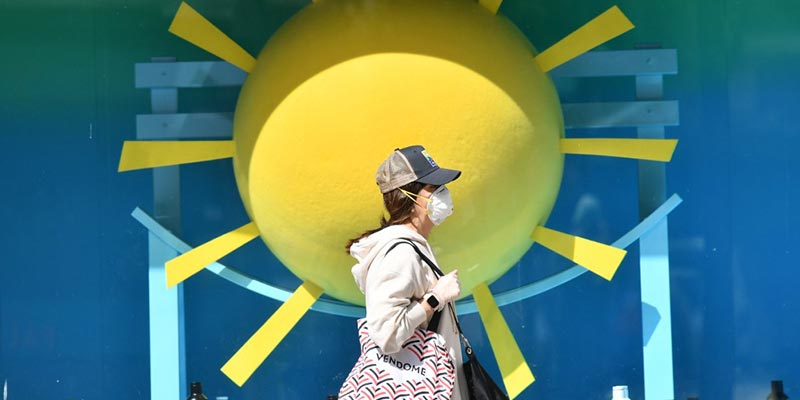- World
- May 06
UK becomes virus epicenter of Europe
Britain became the first country in Europe to confirm more than 30,000 coronavirus deaths and infections rose sharply again in Russia, even as other nations made great strides in taming the virus. China marked its third week with no new virus deaths and South Korea restarted its professional baseball season.
The UK has overtaken Italy to report the highest official death toll from the new coronavirus in Europe, figures released on May 5 showed, increasing pressure on Prime Minister Boris Johnson over his response to the crisis.
Weekly figures from Britain’s Office for National Statistics (ONS) added more than 7,000 deaths in England and Wales in the week to April 24, raising the total for the UK to 32,313. Only the US, with a population nearly five times greater, has suffered more confirmed fatalities from the virus than Britain, according to the data so far. The figures are based on death certificate mentions of COVID-19, the disease caused by the novel coronavirus, including suspected cases.
While different ways of counting make comparisons with other countries difficult, the figure confirmed Britain was among those hit worst by a pandemic that has killed more than 250,000 worldwide.
Opposition politicians said the figures proved the government had been too slow to provide enough protective equipment to hospitals and introduce mass testing.
Responding to the ONS figures, a Downing Street spokesman pointed to Johnson’s recent comments that Britain had passed the peak of the disease but remained in a “dangerous phase”.
PM Johnson, a COVID-19 survivor, is set to unveil a comprehensive plan on getting the UK out of the lockdown in place to curb the spread of the virus later this week, with the state-funded National Health Service (NHS) initiating the process with a trial of its new contact tracing app in the Isle of Wight region on England.
In Russia, the number of infections rose sharply again, with Moscow reporting more than 10,000 new cases for three days in a row.
Israel develops antibody against coronavirus
Israel has isolated a key coronavirus antibody at its main biological research laboratory, the defence minister said, calling the step a “significant breakthrough” toward a possible treatment for the COVID-19 pandemic.
“The monoclonal neutralising antibody developed at the Israel Institute for Biological Research (IIBR) can neutralise it (the disease-causing coronavirus) inside carriers’ bodies,” Defence Minister Naftali Bennett said in a statement.
The statement added that Bennett visited the IIBR where he was briefed “on a significant breakthrough in finding an antidote for the coronavirus”. It quoted IIBR director Shmuel Shapira as saying that the antibody formula was being patented, after which an international manufacturer would be sought to mass-produce it.
The IIBR has been leading Israeli efforts to develop a treatment and vaccine for the coronavirus, including the testing of blood from those who recovered from COVID-19, the respiratory disease caused by the virus.
Antibodies in such samples — immune-system proteins that are residues of successfully overcoming the coronavirus — are widely seen as a key to developing a possible cure.
The antibody reported as having been isolated at the IIBR is monoclonal, meaning it was derived from a single recovered cell and is thus potentially of more potent value in yielding a treatment.
1 billion people with disabilities hard hit by virus
The UN chief said the world’s 1 billion people living with disabilities are among the hardest hit by the coronavirus and called for them to have equal access to prevention and treatment of COVID-19.
Secretary-General Antonio Guterres said the pandemic is revealing the extent to which people are marginalised and is intensifying the inequalities that people with disabilities already face, such as poverty and higher rates of violence, neglect and abuse.
His video message was released alongside a UN report that said people with disabilities are estimated to be 15 per cent of the world’s population and 46 per cent of the world’s people who are older than 60.
He noted that COVID-19 is often more severe in people with existing health problems, increasing their likelihood of dying. And the disabled and elderly who live in care homes and institutions are particularly vulnerable since they may face barriers to health care, good hygiene and social distancing.
Manorama Yearbook app is now available on Google Play Store and iOS App Store

